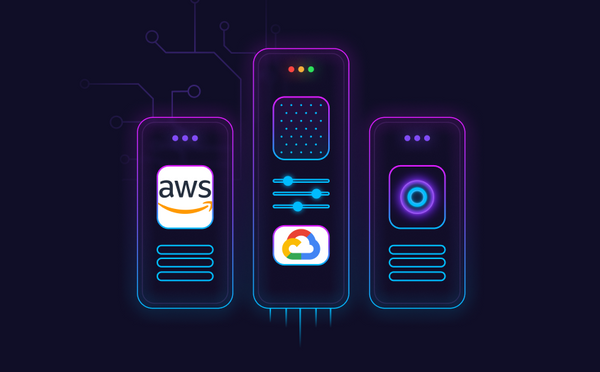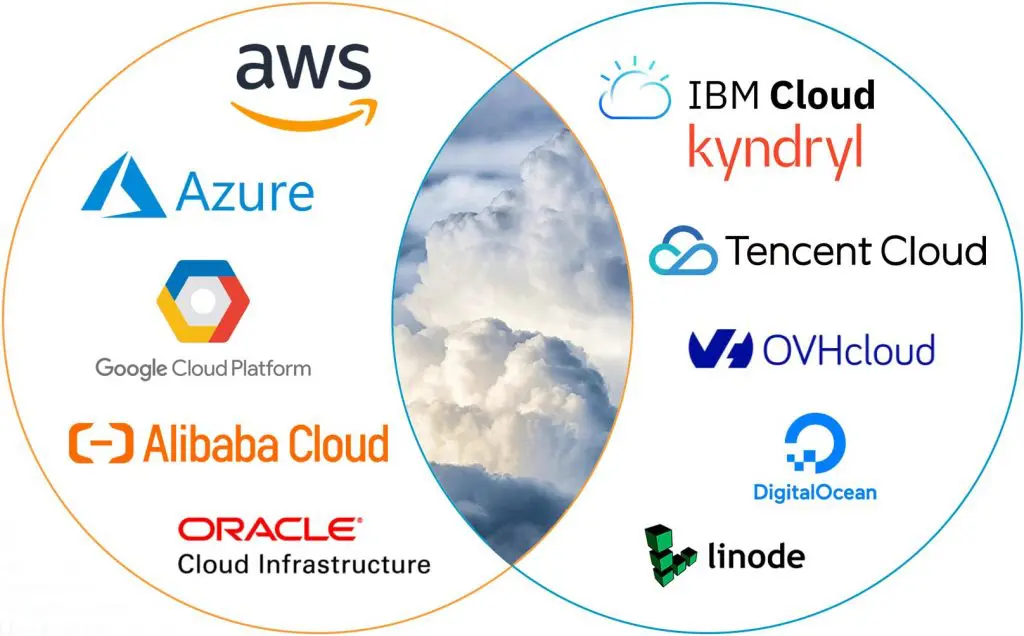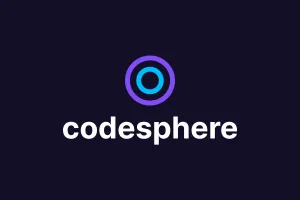Best E-Commerce Hosting Options in 2023
In this post, we will take a closer look at the features, pricing, and overall user experience of e-commerce cloud hosting options. We will compare platforms such as Amazon Web Services, Google Cloud Platform, and Microsoft Azure with alternatives. Whether you are a developer, a business owner, or just someone curious about cloud-hosting platforms, this post will provide valuable information to help you make an informed decision about which provider to choose for your specific use case. Hypers

In this post, we will take a closer look at the features, pricing, and overall user experience of e-commerce cloud hosting options. We will compare platforms such as Amazon Web Services, Google Cloud Platform, and Microsoft Azure with alternatives. Whether you are a developer, a business owner, or just someone curious about cloud-hosting platforms, this post will provide valuable information to help you make an informed decision about which provider to choose for your specific use case.
Hyperscale Cloud-Hosting Platforms
(The Corporate Solution)

Hyperscale cloud providers are companies that operate large-scale data centers and provide cloud computing services to businesses and individuals. They offer a range of services including infrastructure as a service (IaaS), platform as a service (PaaS), and software as a service (SaaS) that can be used to build, deploy and scale applications, store, and analyze data. The most well-known hyperscale cloud providers are Amazon Web Services (AWS), Microsoft Azure and Google Cloud Platform (GCP) . These providers have large-scale global infrastructure, which allows them to provide services with high availability and low latency to customers around the world. These providers also offer various tools and services to manage and operate cloud environments, such as storage, networking, and security, which allow businesses to focus on their core competencies rather than managing their IT infrastructure. Nevertheless setting up a working environment can be challenging and often requires hiring DevOps specialists. We will further discuss the pros and cons of these cloud hosting platforms below.
Pros:
- Scalability: Hyperscale cloud providers have large-scale global infrastructure that allows them to provide services with high availability and low latency to customers around the world. This means that businesses can scale their services up or down as needed, without having to invest in expensive hardware or worry about capacity planning.
- Flexibility: Hyperscale cloud providers offer a wide range of services that can be used to build, deploy, and scale applications, store and analyze data, and more. This allows businesses to choose the services that best fit their needs, and to easily switch between services as their needs change.
- Cost-efficiency: By using cloud services on a pay-as-you-go or subscription basis, businesses can avoid the upfront costs and ongoing maintenance expenses associated with owning and operating their own data centers.
Cons:
- Vendor lock-in: Businesses that become heavily reliant on a particular hyperscale cloud provider's services and infrastructure may find it difficult to switch to a different provider if they become unhappy with the service or if costs increase.
- Security: while Hyperscale cloud providers have robust security measures in place, businesses are ultimately responsible for securing their own data and applications on the cloud, and may need to invest in additional security measures to protect their assets.
- Limited control: When using cloud services, businesses may have less control over the underlying infrastructure and may be subject to the provider's policies, procedures, and terms of service.
- Because these large providers want to serve any type of customer, the vastness of their offering can be intimidating for smaller businesses. Understanding how to build an efficient server setup requires the help of experts that can be expensive and hard to hire for e-commerce brands.
Small-Scale Cloud-Hosting Platforms
(The Solution for Small Businesses & Hobbyist)

Small-scale cloud hosting providers are companies that offer cloud computing services on a smaller scale, as opposed to the large, global infrastructure provided by hyperscale providers like those mentioned above. They may specialize in a specific market segment or industry, such as healthcare or education, or offer a specific set of services, such as managed hosting or dedicated servers. They often focus on providing personalized service and support to their customers. Some examples of small-scale cloud hosting providers include Ionos, Bluehost, and Dreamhost. We will further discuss the pros and cons of these cloud hosting platforms below.
Pros:
- Affordable pricing: These platforms typically offer lower prices than larger, more established cloud hosting providers, making them a good option for small businesses or individuals on a budget.
- Personalized service and support: These providers often have a more hands-on approach to customer service and may be more responsive to individual needs.
- Specialization: They may specialize in a specific market segment or industry, such as e-commerce or WordPress hosting, which can provide customers with more tailored solutions.
- Cost: Smaller scale providers may offer more competitive pricing than larger, hyperscale providers.
Cons:
- The low priced offers usually don't provide dedicated computing ressources. That means your website is running on a server setup that is shared with other customers of this provider. This allows them to offer computing at a bargain price but is not ideal for the page speed of the websites hosted there.
- Limited features: Smaller hosting companies may not offer as many features or services as larger providers, such as site migration or automatic backups.
- Lack of reliability: Due to the limited resources, the hosting platform may not be able to handle traffic spikes in unexpected events. Also there might be limited backup capacities in case one of their clusters experiences an outage.
- Limited support: Some small scale hosting companies may not offer 24/7 customer support, which can make it difficult to get help in an emergency.
Accesible Cloud (Native) Platforms
(The Smart Solution)

There is a new generation of cloud providers on the rise. Most well known is Digital Ocean and their e-commerce hosting sub branch Cloudways. The goal of this new generation cloud providers is to offer the same scalability, reliability and speed as the large hyperscalers but lowering the entry barriers and making the technology more accessible to smaller teams. They focus on the user experience of their customers over the cost-optimizing aspects the hyperscalers apply.
This has major benefits for e-commerce brands as they typically lack the resources to hire a specialised DevOps team. Some of these providers go even one step further by providing additional features out-of-the box that make it easier to run, optimize and update your e-commerce site. With this they might eliminate the need for some third party plugins and integrations that would be required elsewhere.
At Codesphere we offer a cutting-edge cloud-based integrated development environment (IDE), coupled with easy to set up and scale hosting. We are working towards a cloud-native breakthrough in developing and shipping software products. Like Figma managed to move the traditional design process completetly into the cloud, we are building an environment where all steps from development to testing and production can run seamlessly in the cloud. Unlike traditional IDEs, this provides developers with a collaborative workspace that allows them to code, test, and deploy applications in real-time, all within a single platform.
Coupled with integrated and straightforward infrastructure setup, managed (continuous integration) deployment processes we have built an environment that is ideal for e-commerce hosting. Things like load balancing (multi-server hosting), a/b testing and staging environments can all be accessed with a couple of clicks.
Below is a table comparing feature availability for some of the most common e-commerce hosting providers.
| Platform | User-Friendly Interface | WordPress hosting | Multi-Server hosting | Staging Environments | Automatic Scaling | |
|---|---|---|---|---|---|---|
| Raidboxes | ✅ | ✅ | ❌ | ❌ | ❌ | |
| Kinsta | ✅ | ✅ | ❌ | ❌ | ❌ | |
| Cloudways | ✅ | ✅ | ✅ | ✅ | ❌ | |
| Hostpress | ✅ | ✅ | ❌ | ❌ | ❌ | |
| Hetzner | ❌ | ✅ | ❌ | ❌ | ❌ | |
| Codesphere | ✅ | ✅ | ✅ | ✅ | ✅ | |
| Shopify (one stop solution) | ✅ | ❌ | ❌ | ✅ | ❌ |
Watch our intro video to Codesphere and learn how to:
1. Spin up a new server and deploy your application within seconds
2. Launch genuine A/B tests with different code versions
3. Speed up your page by connecting multiple servers
4. Do 1 click deployments with zero downtime and no anxiety 👻
Explained in under 4 minutes, easy enough for anyone to follow along, no #devops experience required.
Check it out for yourself: Codesphere

